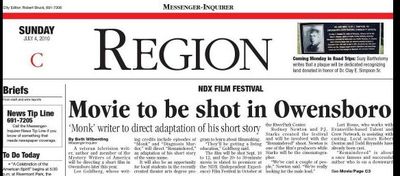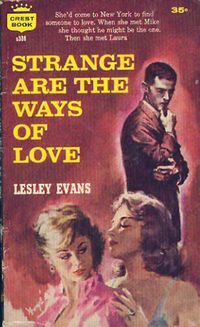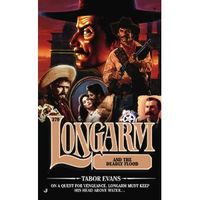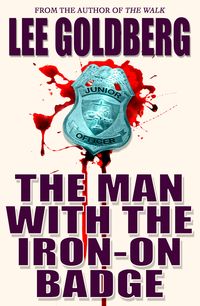
The Owensboro Kentucky Messenger Inquirer had a story on July 4 about the short film I'll be directing there over three days in September.The film is based on my short story Remaindered, which was published a few years back in Ellery Queen Mystery Magazine .
RiverPark Center officials are excited about the educational opportunities the film shoot will provide local students.
Roxi Witt, general manager of the RiverPark Center, said the film will give theater arts students the chance to participate in a project that they couldn't experience anywhere else.
"Lee is obviously very accomplished," Witt said. "He's also personable and easy to listen to. He's got some great stories, but has a lot of knowledge and is incredibly meticulous."
The movie's cast and crew will all be from Kentucky and there will be film students on the set watching the production…as well as working as grips and helping out with crowd control. I'll also be hosting a few seminars before, during and after production to give the students a glimpse into how TV shows are written, prepped, produced and edited. The finished film will be screened in October at the inaugural NDX Experience Film Festival in Owensboro.
I owe this wonderful opportunity to my buddy David Breckman, who wrote, produced and directed a short film, Murder in Kentucky over four days during the International Mystery Writers Festival at the RiverPark Performing Arts Center in Owensboro last summer. He also used a local cast and crew. You can see David's movie here.
I had such a good time watching him and the crew at work that I was eager to try it myself, though without the pressure to do it all — write, produce, and screen it — in four days. In my case, the script was written months in advance, we're taking a few weeks to cast and prep, and then we'll shoot over three days and take about three weeks to edit it.
The original intent was to shoot the movie and screen it at the Festival this summer. But state-funded Festival was postponed due to delays passing the state budget.
However, thanks to the efforts of Festival organizers Zev Buffman and Roxi Witt, and their enthusiasm for the project, the film is going on anyway as part of a local theatre arts education program the RiverPark Performing Arts Center is involved with.

I'll be using a lot of the same crew that David did…namely local producers Rodney Newton and PJ Stark…and actor Todd Reynolds, who played the cop in Murder in Kentucky and who will play the cop in mine, too. I think there should be a local ordinance requiring anyone who produces a crime film in Owensboro to hire Todd to play a detective.
I'll tell you more about Remaindered as the project progresses…
If you are interested in reading the short story that inspired the movie, it's in my collection Three Ways to Die, which is available on on the Kindle and it's on Smashwords, too, in every other e-format you can think of.
 Lawrence Block has written a terrific piece for eFanzines.com – Earl Kemp: eI53 – e*I* Vol. 9 No. 6 about the thought-process behind his decision to release many of his obscure, long out-of-print paperbacks, many written under pen-names, in new, digital editions. He says, in part:
Lawrence Block has written a terrific piece for eFanzines.com – Earl Kemp: eI53 – e*I* Vol. 9 No. 6 about the thought-process behind his decision to release many of his obscure, long out-of-print paperbacks, many written under pen-names, in new, digital editions. He says, in part:






